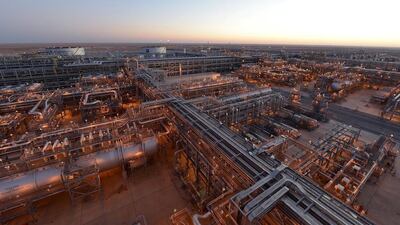The elevation of Mohammed bin Salman to crown prince of Saudi Arabia solidifies the young royal’s drive to privatise the state oil company Saudi Aramco, although formidable obstacles to a public share listing remain.
A public listing of Aramco has been the cornerstone of Prince Mohammed’s scheme to radically transform the kingdom’s economy since he announced it last year in his first public interview. Already, the previous year, he had been given the economic portfolio with a broad reforming remit.
The Aramco plan, as originally laid out, was to sell 5 per cent of the company through a primary listing on the Saudi stock exchange, the Tadawul, with a secondary listing on one of the major international exchanges, preferably the New York Stock Exchange, hoping to value the company at US$2 trillion and place the initial public offering proceeds into the kingdom’s Public Investment Fund as a step toward reducing the government’s reliance on oil revenue.
Although he met early resistance from conservative elements within Saudi Arabia’s oil establishment, Prince Mohammed has pushed ahead with the legal and bureaucratic reforms necessary to prepare the company for a listing, most recently with a change in the law in March to reduce Aramco’s tax rate from 85 per cent to 50 per cent.
“The new crown prince had already been directing these policies [Aramco and economic reform] and the fact he’s been confirmed as first in line to the throne versus second in line solidifies his position,” said Paul Stevens, a fellow at the Chatham House think tank and a professor at Dundee University. “To some extent, the opposition he had been facing may have been restraining his efforts at reform. So, the fact they have now been confident enough to name him as crown prince means that opposition has been contained and he’ll have the ability to push through.”
The Aramco plan, however, still faces external issues that will not be easy to overcome.
Just in the past month, the Saudi leadership has been warned of problems not only with its preferred international market – the NYSE – but also with a potential listing on the London Stock Exchange.
The Saudis’ legal advisers in New York, White & Case, confirmed the long-held concern that a public listing on the NYSE might leave the company open to class action lawsuits following the passage last year of the US Justice Against Sponsors of Terrorism Act (Jasta).
In London, a number of the largest institutional investors have in the past few weeks publicly lobbied against any relaxation of investor protection rules to accommodate the Aramco listing there. While the Saudis’ advisers have been dealing with some of the worries raised – such as making it clear Aramco would not be included in the FTSE 100 index, which would have compelled index tracking funds to have an overweight exposure to it – the main concern for the company is that it would have to meet stringent governance standards as dictated by the UK Financial Conduct Authority for a “premium” listing, or go for the lesser “standard” listing.
Saudi Aramco officials say at this point only that “no decision as to listing venue, beyond the Tadawul, has been taken”.
The problems the firm faces stem from its size and might be dealt with if Prince Mohammed scaled back his ambition and broke up Aramco into smaller pieces, as some advisers have counselled. Indeed, advisers – including McKinsey, which set out a blueprint for the economic reform, as well as the investment bank Moelis, and others, including individuals involved in the UK’s privatisation programme – have given widely conflicting advice, including leaving Aramco in government ownership, according to people involved.
The crown prince “has put such a big weight on Aramco being a $2tn company that that alone means he will find it difficult to let go of that original plan,” even if the obstacles are becoming apparent, said Jason Tuvey, an economist at Capital Economics.
“It is very much the flagship, the symbol of the reformed Saudi Arabia that he is trying to work towards,” said Mr Stevens. “But the devil is always in the details and there is plenty of devil there.”
amcauley@thenational.ae

